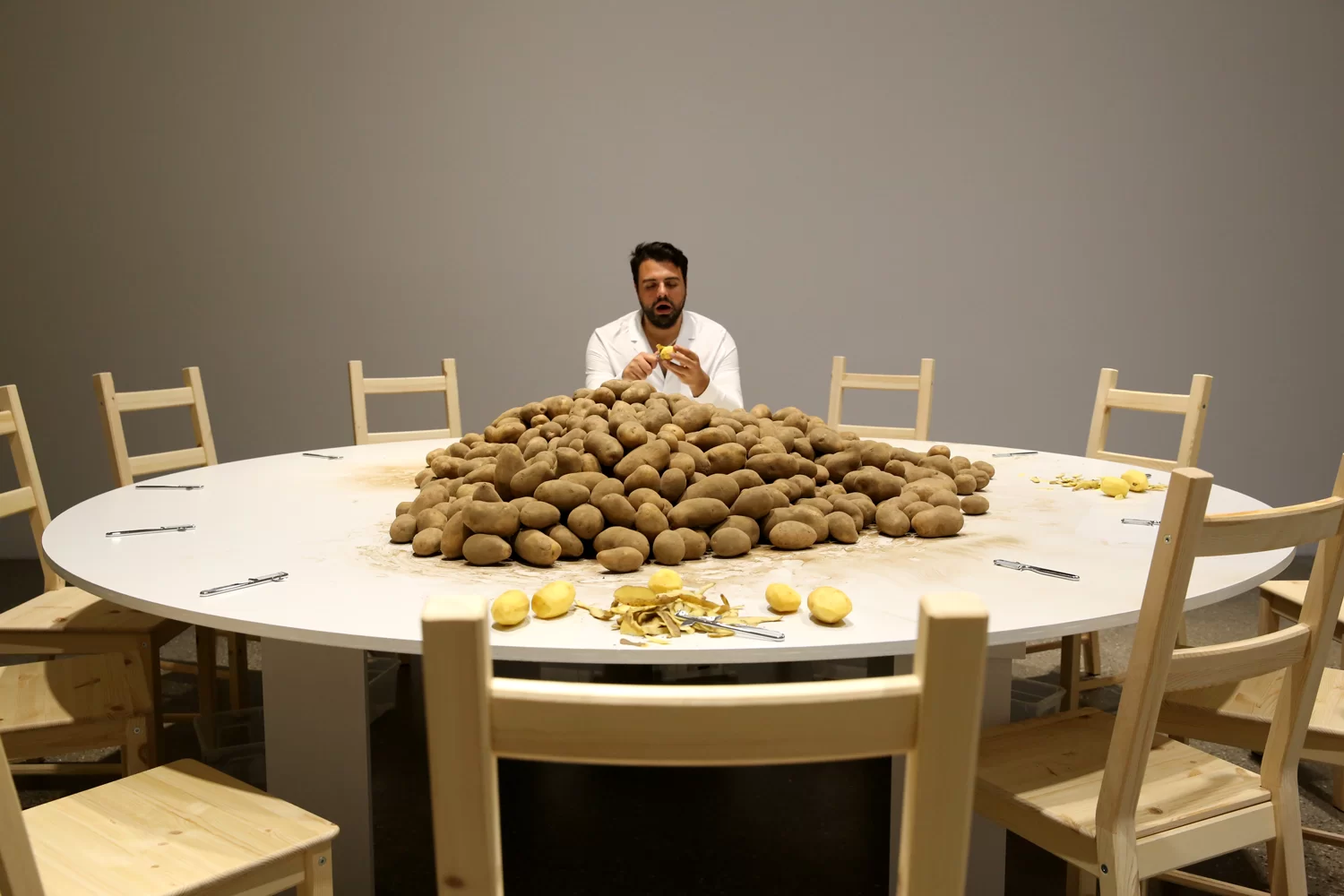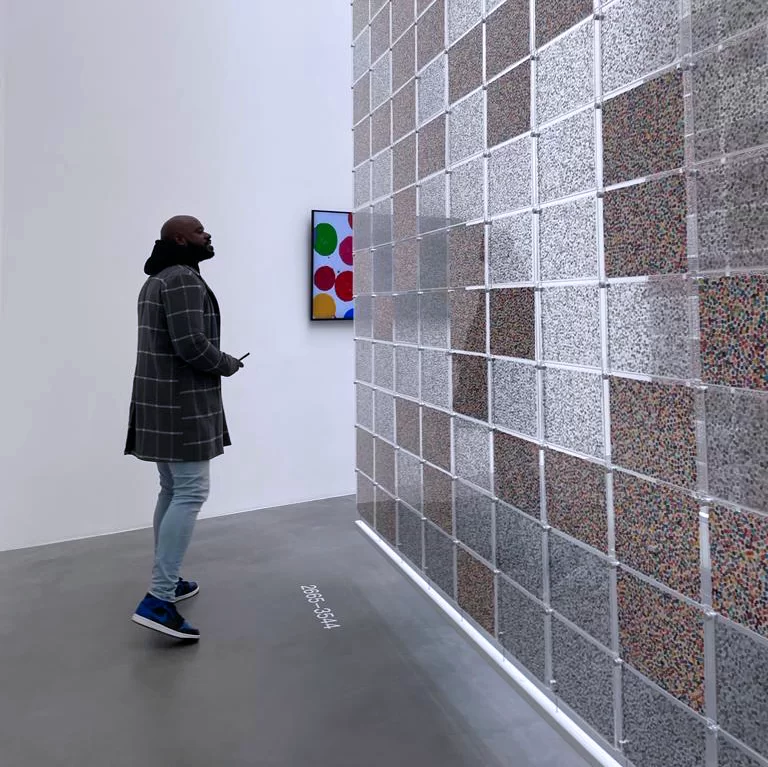Aleksandar Timotic is no ordinary countertenor; he’s a genre-defying virtuoso who marries the grandeur of opera with the immediacy of performance art. Boasting a vocal range akin to that of a contralto or mezzo-soprano—a rarity for a male voice—, Timotic can whisk you from the opulence of the Baroque era to the cutting edge of contemporary music in a single, breathtaking moment.
Occupying this unique niche, he treats his voice as a versatile instrument that defies easy classification. He turns the traditional opera stage into his playground, a canvas for avant-garde exploration.
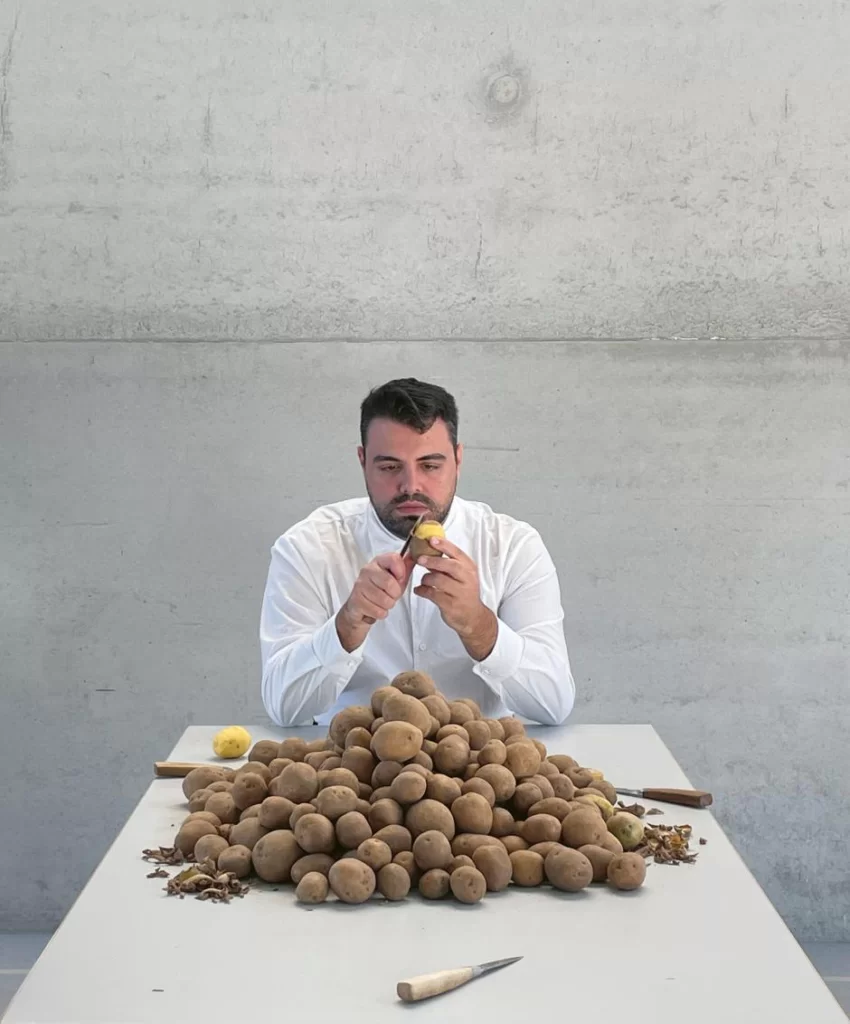
Image courtesy of Aleksandar Timotic
I am very excited by the idea that we can bring something new to the Opera and give the audience an experience that they are not used to when they think of opera art.
Aleksandar Timotic
Timotic is set to challenge artistic norms even further this October with “Are You Hungry” at Southbank‘s Queen Elizabeth Hall. Yet the venue is more than just a backdrop; under the curatorial guidance of Marina Abramović and the Marina Abramović Institute, it transforms into a multi-dimensional experiential space. Timotic’s performance offers an intimate look at the absurdities of love, revealed not through soaring arias but through the simple, poignant act of peeling potatoes while occasionally singing folk songs from his Serbian upbringing. The performance is a testament to the power of love’s quieter moments.
Timotic’s journey through opera and art has been a global trek of learning—from Niš to Lugansk, Belgorod, and finally, to Germany’s prestigious Folkwang Universität der Künste. Mentored by international maestros like Dschuljetta Yakubovych, Prof. Tatjana Baschkirowa, and Prof. Martin Wölfel, Timotic has cultivated an approach that is as varied as it is intensely focused.
At its core, Aleksandar Timotic embodies the exciting possibilities that emerge when one refuses to be pigeonholed. He shows us that the future of opera might lie in its capacity to embrace other genres. Could this be the 21st-century remix that opera didn’t know it was waiting for? We’ll leave that for the audience to decide, but one thing is clear: In a world that often insists on boundaries and labels, Timotic seems quite comfortable in the exhilarating space in between. We managed to catch up with the countertenor ahead of his performance at London‘s Southbank this October.
Hi Alexander, how are you? Thank you for taking the time to speak with us. Please share something about your personal journey. How did your first years in Serbia shape and influence your path as an artist and opera singer?
Aleksandar Timotic: Zdravo, Hello, Thank you very much for the opportunity to have this conversation with you. I am very well. I am very much looking forward to my arrival in London and the opportunity to share this experience with the English audience. My childhood in Serbia certainly influenced me a lot and left a mark on my art, it is something that we carry with us forever. Music was always present when I was growing up in Serbia, be it with the family, neighbours, friends or during one of our outings at one of the Kafanas (Serbian tavern); there was always music playing, and we would sing and dance to it. Through the years, I became acquainted and fell in love with classical music and decided to pursue this further as an opera singer.
Also, all my experiences that came after my departure from Serbia, starting with my education that I acquired outside of Serbia, as well the many phenomenal people I met and the wonderful countries I visited and lived in, all these things left their mark on my expression and creativity. I believe that it is very important where we are born, but that it is even more important where we go on and how we develop. An interesting fact is that my first trip outside of Serbia was to England. I will never forget the jolt when I saw London for the first time.
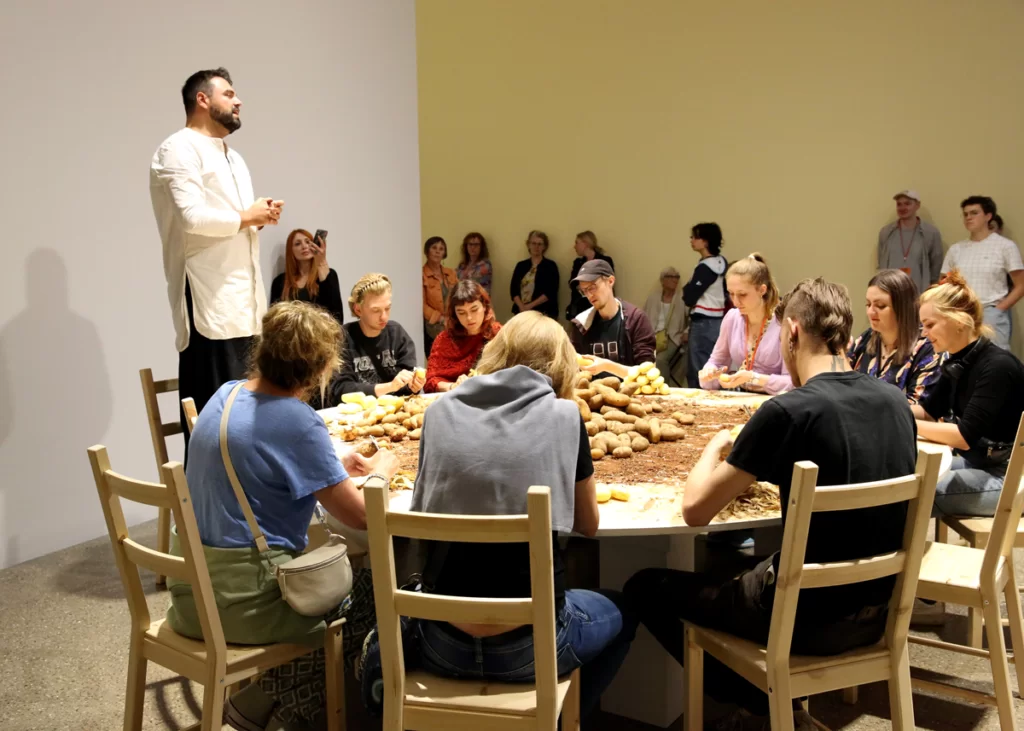
Can we talk about your practice, specifically in the fields of art and opera? Are there themes that run consistently from start to finish? How do you strike a balance between the two?
Aleksandar Timotic: Performance and Opera are two very different directions in art. Performance is a matter of the moment and direct contact with the audience. In performance, there is no mistake or expectation of any result; we come with an idea and we don’t know what will happen.
Opera, on the other hand, is very specific and strict in its requirements; the composer and the director already knew what they specifically wanted, and I, as an opera singer, am there to fulfil all their requirements and tasks and to do my best to leave my personal mark through this interpretation. So it is quite difficult for me to compare these two creative processes. Nonetheless, I definitely know that they work phenomenally together in symbiosis. Marina was the first to start this with her Opera “The Seven Deaths of Maria Callas” I am very excited by the idea that we can bring something new to the Opera and give the audience an experience that they are not used to when they think of opera art.
Given the cultural background you mentioned, have you ever struggled with expressing your emotions? How has that affected your work as an artist?
Aleksandar Timotic: My performance “Are you Hungry” was created at the moment when I realized how difficult it is for people from the Balkans to express their emotions in words, as it is mostly understood as a weakness. So, in one period of my life, I faced the problem that I was afraid to be who I am and to be emotionally naked in front of the audience. It was especially difficult for me as a man because I was afraid that I would not be “masculine” enough if I showed too much emotion.
My voice is a countertenor, a male voice that has the pitch of a female voice. For a long time, I tried to sing with a deep male voice because I was afraid to be who I am and did not want to be judged by the environment. Even then, I was constantly judged. Only when I fully accepted myself and my voice did I realize that people started recognizing my art, for art does not suffer lies, neither when we lie to ourselves nor when we lie to the audience. It is always present.
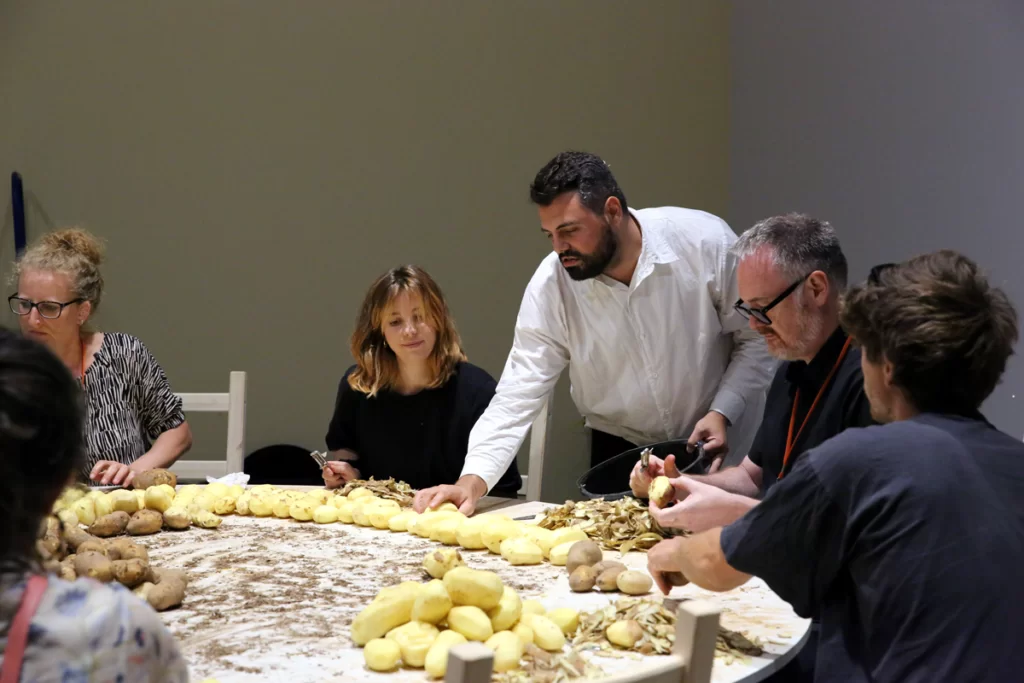
The Marina Abramović Institute will take center stage in the Queen Elizabeth Hall at the Southbank Center this October. You will also perform your piece “Are You Hungry”. What can the attendees expect from the exhibition?
Aleksandar Timotic: I am not fond of expectations in art and life; it’s wrong because through that we already close ourselves off from new experiences. When I performed “Are You Hungry?” at the Folkwang Museum in Germany, the audience and I developed wonderful experiences through the piece that I had not foreseen during the preparation. Unfortunately, the disease of today’s society is that people are very lonely and alienated, too busy with work. Through our joint peeling of potatoes at the table, we become very connected and create a community, a family; with our hands touching the earth and the soil, we return to nature with the common goal of feeding our neighbours. Through this joint activity, we show unspoken love. All potatoes will be donated to the public kitchen, of course.
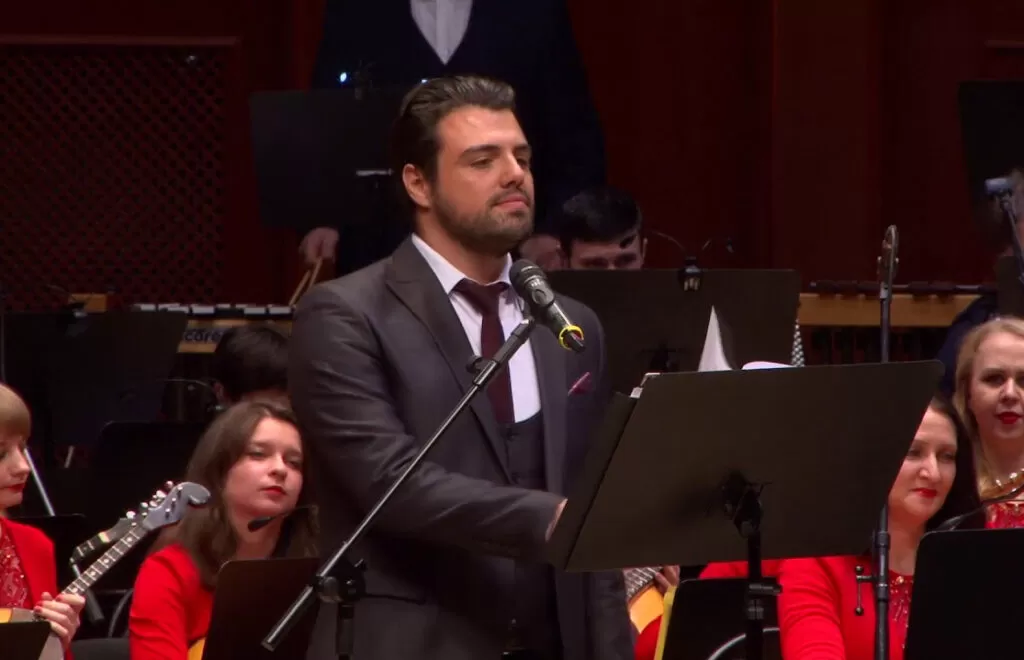
Watch full performance here
The title “Are you hungry” is quite recognizable. Can you talk about the moment you chose this title and its deeper meaning?”
Aleksandar Timotic: The title is very multi-layered and has many meanings. In Serbia, it is very difficult for us to tell someone that we love them, and the moment when we want to say “I love you”, our mouths say, “Are you hungry? Do you want to eat?”. Through that self-sacrifice and preparing food, we show love. Also, many people in the world are hungry today, physically hungry, and emotionally hungry for love, attention, hugs. I struggled to find the perfect title for quite a while. It was one night after I had an argument with my partner; within that reconciliation moment, I asked him, “are you hungry ?” and he said, “that is what you should call your performance”. And it really was the perfect name for this piece.
Your work often seems to draw from deep cultural roots. Can you tell us more about Serbian traditional songs that talk about tragic and self-destructive love? Do you incorporate these themes into your performances?
Aleksandar Timotic: We, the Balkans, absolutely love to sing about our mental states and sufferings. It’s very difficult to talk about them with anyone, yet it’s interesting that we mostly rejoice with these songs and dance to them even at weddings and birthdays. But if you listen to the lyrics of these songs, you’ll understand that there’s no reason to celebrate at all. The songs are very self-destructive.
They are mostly romantic and unhappy; they sing about death or infidelity with their partner or how they can’t be together. One of our most famous songs, “Hajde Jano”, goes on about a person who wants to sell everything he has in order to have money to drink and dance, very tragic and dramatic. “Mito bekrijo” is about a woman who asks to be taken home by her drunk lover to voluntarily take care of his old mother. At the end she says that her youth is gone while waiting for him to finish drinking at the kafana. Yes, I will be performing these songs during my performance.
How, in your opinion, has folk art served as an emotional outlet for Serbia, historically and today?
Aleksandar Timotic: Folk creativity absolutely served the people in Serbia and still serves today. In the past, people used art as a valve to express all that they could not say; our folk songs sing a lot about sex, of course, in a figurative sense. For example, women used to sing these songs to men to give them a sign because they were not allowed to say those words directly. Nowadays, folk art is still practiced by the younger generation as a means of preserving the culture and not as an emotional outlet.
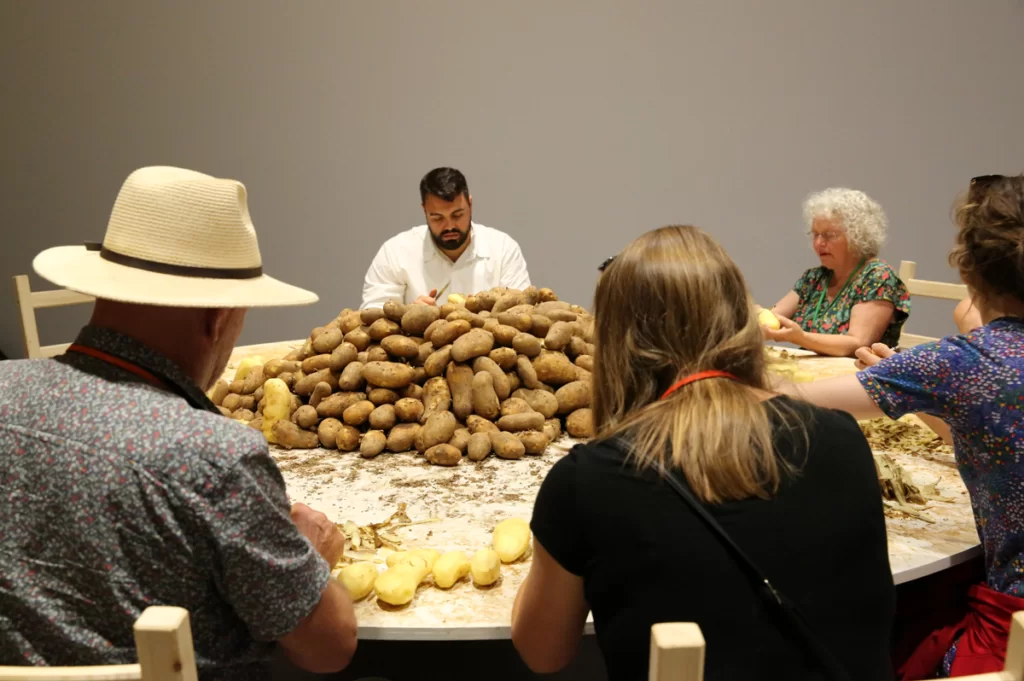
Looking ahead, how do you envision your work evolving, especially in exploring emotions, cultural perceptions, and bridging different cultural worlds?
Aleksandar Timotic: You know, it happens very often when you enter a work like I did in this particular one. I thought of a theme that is very close to my culture, the balkan culture. During the development, I very quickly discovered that the topic was very universal. I think when you work with emotions, there is no barrier. People feel the same in all parts of the world and struggle with the same feelings, so barriers in that sense, are an illusion. I wish to delve more into other cultures than my own, and to find that one common practice that conveys the message of love. I want my future projects to show that we can all identify with each other regardless of all our phenotypical or cultural differences.
Are there other aspects of Serbian culture or personal experiences that you are eager to explore in your upcoming works?
Aleksandar Timotic: Yes, there are many different practices of culture that I would love to translate into a performance, but this is still in the cooking, so let it remain a surprise.
What’s next for Aleksandar Timotić?
Aleksandar Timotic: After London, I’m going back to preparing for a new opera role. I am also working on preparing a new project that will contain elements of opera and performance.
Finally, in your own words, what does art mean to you?
Aleksandar Timotic: For me, art is a perception of reality and the need to show that perception to others.
https://www.instagram.com/aleksandar.timotic.counter/
©2023 Aleksandar Timotic


